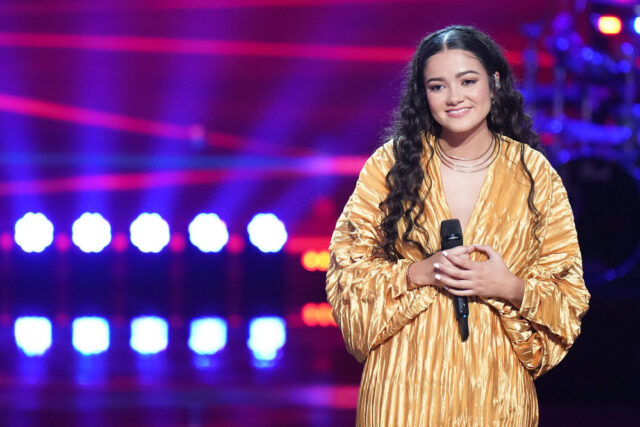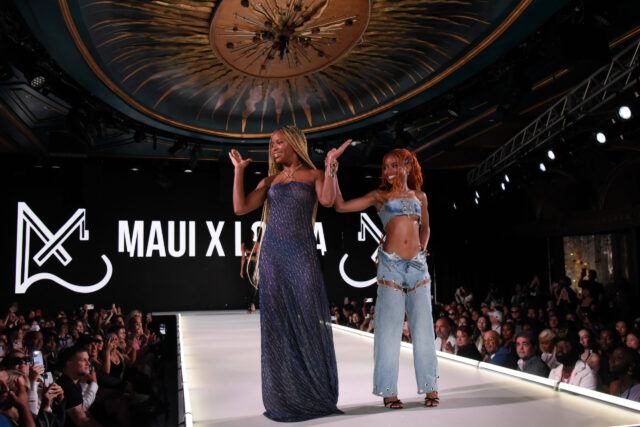Interview: Dominique Fishback Shines in Powerful New Film ‘Judas and the Black Messiah’ Streaming Now on HBO Max
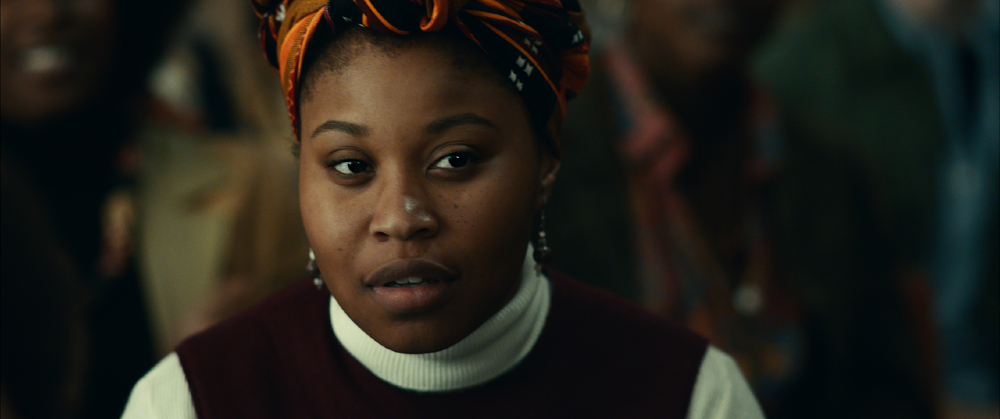
Actor and poet Dominique Fishback lights up the screen in the powerful new film Judas and the Black Messiah, written and directed by Shaka King and released in theaters and on HBO Max, February 12. The film tells the story of Fred Hampton, the chairman of the Chicago Black Panther Party, and how the FBI targeted him and the organization, which led to his untimely death.
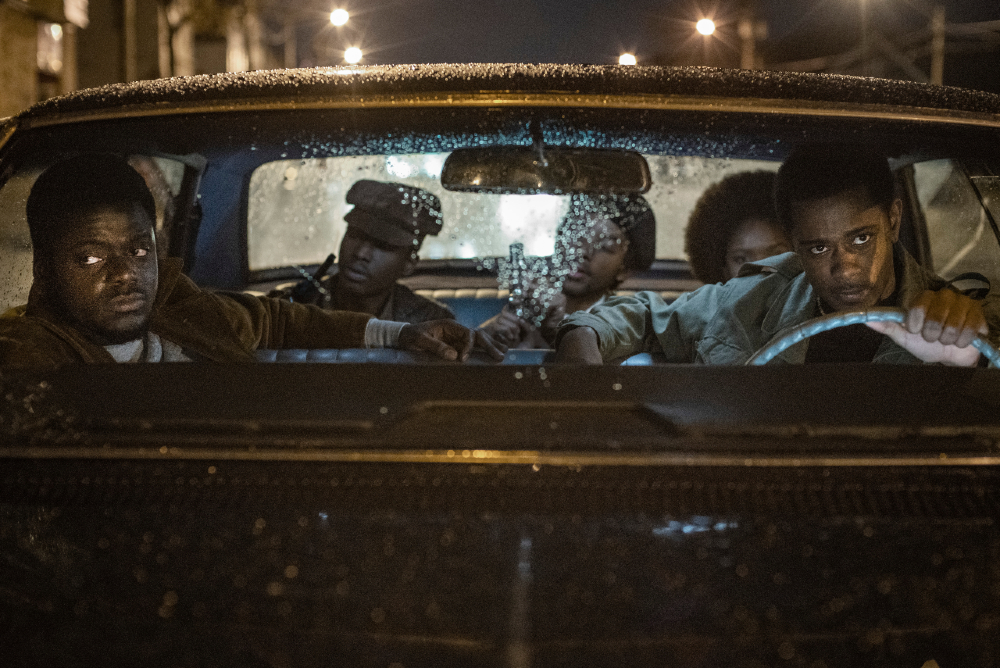
Fishback plays Deborah Johnson, Hampton’s love interest, giving us a compelling performance assuring that Judas and the Black Messiah includes the brave female voices critical to the Black Panther Party. Fishback’s portrayal is passionate and layered as we feel every emotion on her path through love and survival. Daniel Kaluuya stars as Hampton and LaKeith Stanfield as FBI informant William O’Neal, as he infiltrates the Illinois Black Panther Party.

Glitter chatted with Dominique on how the role came about, what she learned from working on the film with its stellar cast, themes of Black love, which are layered throughout the film, as well as her favorite scenes to film. Read on for more.
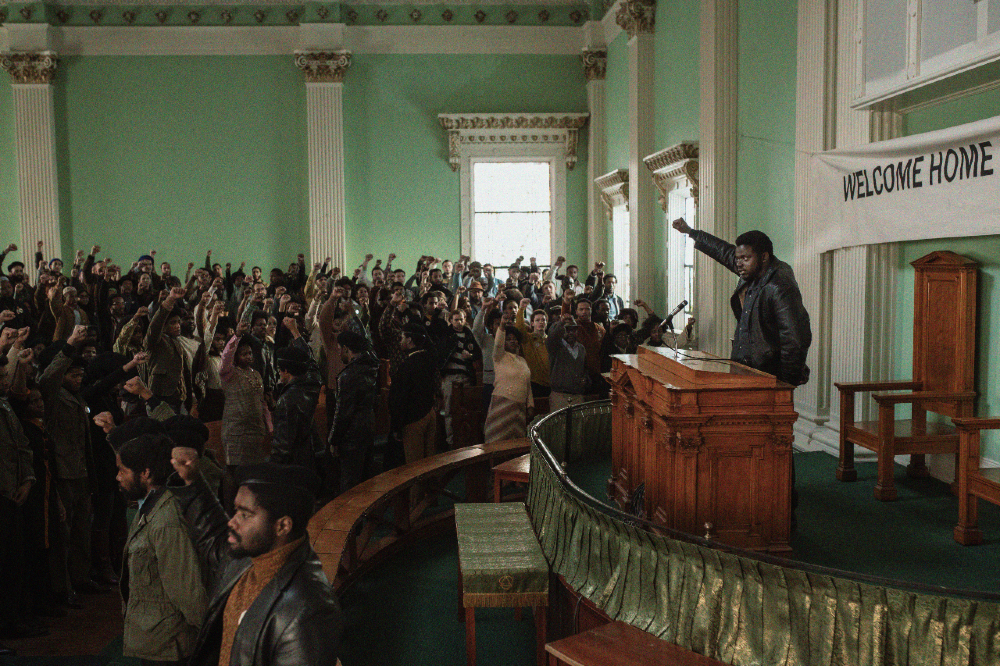
GLITTER: What can you tell us about your role as Deborah Johnson, aka Mama Akua?
DOMINIQUE: I can tell you that it changed my life. I know it might sound cliche because so many people probably say something like that. I didn’t know that I was walking into it like, I’m such a lover. So my heart is always open. But in life, we can still be loved but still have hard shells around us and not realize it. I realize in hindsight that I had a pretty hard shell, and they really broke it down because they allow me to feel safe and heard and seen and taken care of. Now I navigate the world differently by embodying that the spirit of Mama Akua and the Black Panther Party.
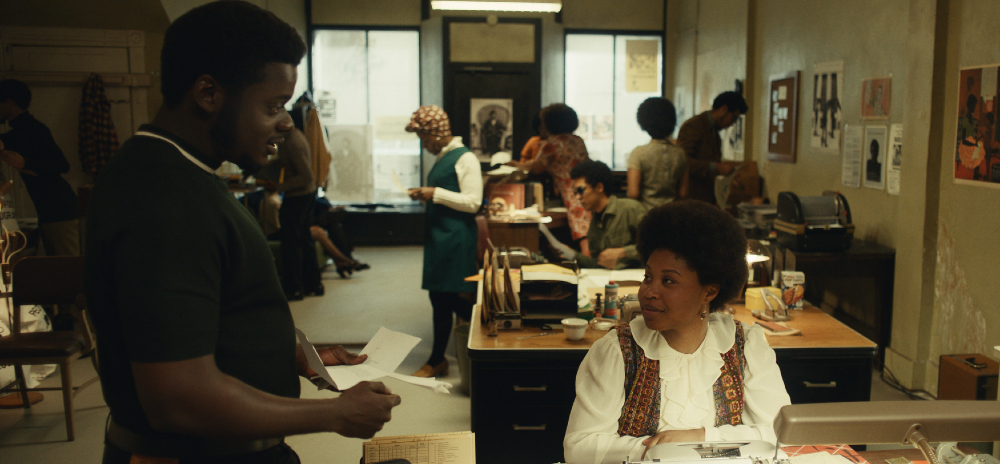
GLITTER: Black love is a major theme in the film; what do you hope viewers take from this aspect of the film?
DOMINIQUE: Yes, thank you. Well, that was one of the first things that I said to Shaka, our director and writer. I wanted to make sure that we get to see that Chairman Fred loved her for who she was, for her intellect, beyond the physical, anything that she had to prove. Because a lot of times in this genre for black women, we always have to prove ourselves worthy of love. Before there’s a commitment, stand by them through the hard times in their lives, jail, when we get pregnant, and only then are they willing to commit. I want to make sure that we saw that she was worthy of love before that. So when I think about black love and portraying that, I’m honored that I get to use my voice, my body, to tell the story. Mama Akua, formerly known as Debra Johnson, is revolutionary in love, the sacrificial gesture that she does, in the end, is beyond what I could imagine, and I learned unconditional love from them. I understand it intellectually. I understand it spiritually. I’m learning how to keep that apart of my every day.

GLITTER: What were your favorite scenes to film?
DOMINIQUE: Oh, the romantic ones. I mean, it was funny because I was writing my own Romeo and Juliet Black Panther Party-esque story right before I heard about this; I was reading a book called The Taste of Power by Elaine Brown. She was a Panther in the Oakland chapter. And I got an email that the Shaka King is writing a story. He got the role for me, Daniel Kaluuya would be playing Chairman Fred, and I was like, “Oh, I was manifesting a romantic role that’s so dope.” So, obviously, I would be like, “Daniel, are you going to hold my hand?” Like, just every moment that they got, I was really trying to build out the love, and so the Malcolm X is pretty fun. So it got to show, like, you know, they’re revolutionaries and are so powerful on stage and to the world, and then we get this moment where they are quiet and shy. You know, if she wants to kiss him, but she doesn’t know how to say it, and he wants to, that’s the fun part. And they’re 19 and 20, 21. So, like, we get to connect with them on that level.
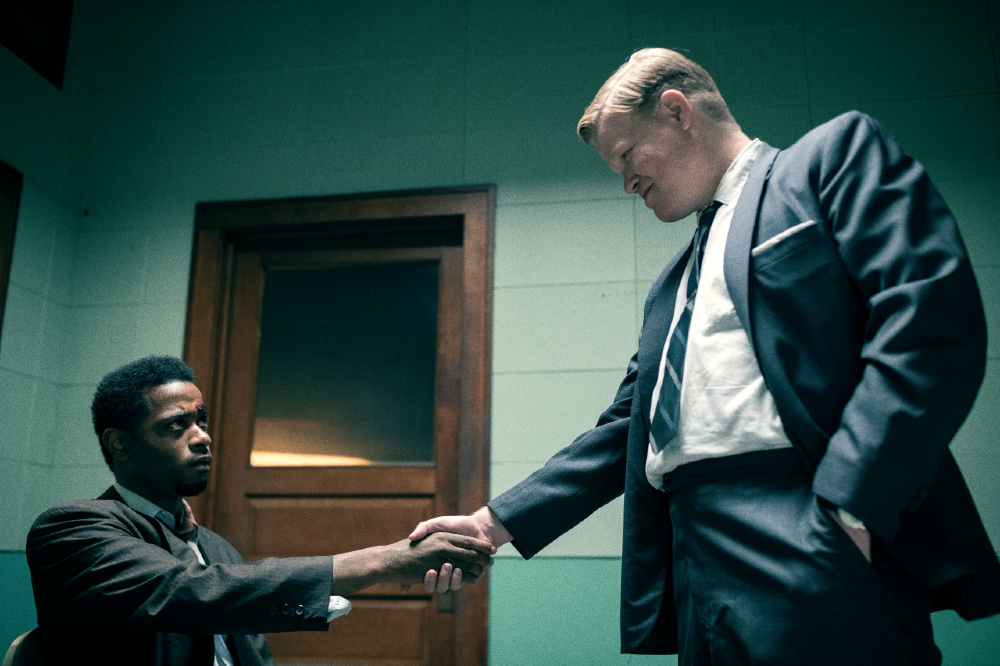
GLITTER: What was it like working alongside Daniel and Lakieth?
DOMINIQUE: Lakieth, it was just amazing to watch him because he’s playing the Judas and anybody who could take responsibility and really allow themselves to navigate a character like that, not to say without fear, but with so much courage, just deserves to be celebrated and we know that O’Neill is not an actor. So the level of commitment that Lakeith has to do to be an actor, living as a person who’s acting, who’s not an actor, right, there’s so many levels to it. Thank you for asking because I don’t really get to talk about Lakeith that much, but I thought he did amazing. And then, Daniel, just the way in which we were both open to each other and the energy flow, and I learned to trust him in so many ways and watch how he took up space, and so that allowed me to move. Now he’s one of the people that I call to when I’m having a bad day, and he’ll always have something perfect to say. So I’m really happy that these people are in my life.
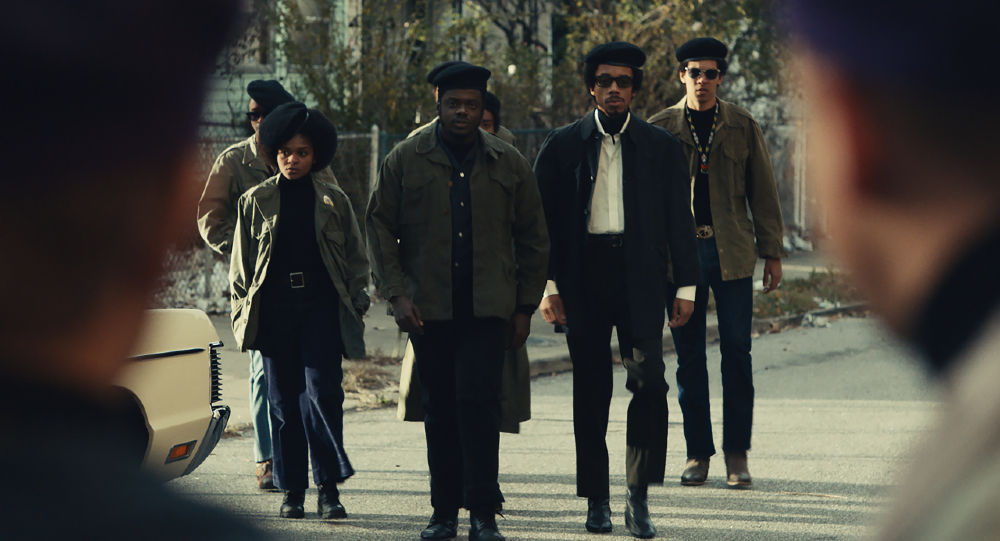
GLITTER: Why is it important that films like Judas are made?
DOMINIQUE: It’s important because it allows black people to take responsibility for our own stories and our own creations. I don’t know how many stories get to say they had the family on set every single day, but that is such an accomplishment to bring everybody together to create this story. That just goes to show when we get the opportunity to tell their own stories, we’re going to do it in a different and hopefully a more compassionate way. And that’s what I saw when I listened to Chaka King talking to the family and saying, you know, if there’s anything, obviously this is a movie, everything is not going to be exact, but if there’s anything that’s detrimental to the legacy of the Black Panther Party, let me know, and it’s out, you know, and just that lean in, the way Hammond and Ryan Coogler, Charles King leaned into the family. I don’t know if it’s actually heard of it. The way that they’ve done it.

GLITTER: Can you tell us what’s next for you?
DOMINIQUE: Well, my birthday is next month, March 22. Ever since Project Power and my character rapping and the fact that I wrote the poem in this movie, I think there’s a lot of energy around me creating poetry or some kind of music. So I have a little gift for people that I’m going to put on my Instagram.
Be sure to stream Judas and the Black Messiah on HBO Max.
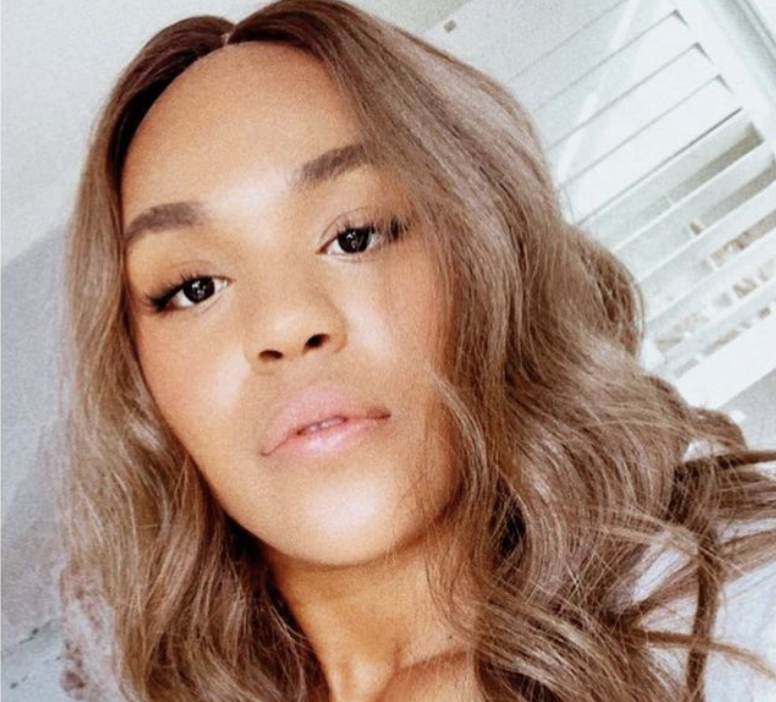
Glitter Co-Founder | Writer | Journalist | Host | Tweet me @zoefowler28

